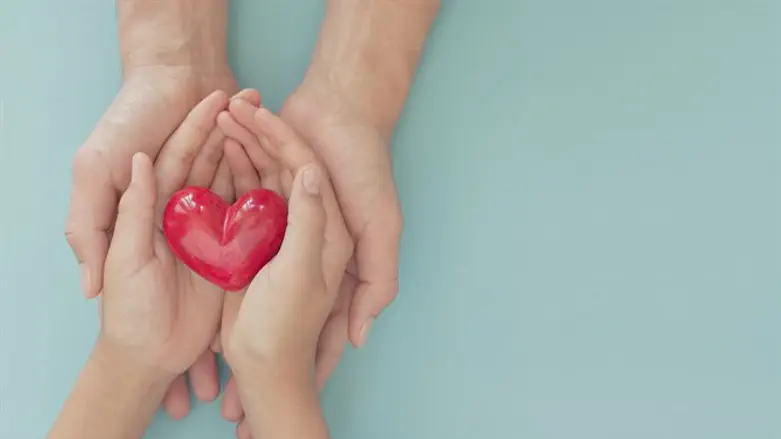
לע”נ הרב דוב בער בן צבי נחמן הלוי
In loving memory of Rabbi Dov Swerdloff, Z”L
There is a well-known anecdote related by Rav Moshe Leib Ehrlich, the Rebbe of Sassov. He once overheard the drunken conversation between 2 Russian peasants.
The first man told the second how much he loved him. The man replied that he couldn’t truly love him. Once again, the first man confessed his true love of the second and was rebuffed.
“Ivan, we have been close friends for so many years. How can you say that I don’t love you?”
His friend replied, “Alex, if you loved me, you would know what I need. That is true love”.
The Sassover Rebbe said that from these two people he came to understand what true love of another entails. While he, the “Rebbe” claimed to love all Jews, in fact, it was Ivan the drunk, who truly grasped the deeper meaning of love.
Judaism obligates us to provide for what another needs. That requirement stretches beyond the material to encompass the needs in the emotional and spiritual realm.
This is fundamental in the Jewish philosophy of kindness and charity as related in Parshat Re’eh:
כִּֽי־פָתֹ֧חַ תִּפְתַּ֛ח אֶת־יָדְךָ֖ ל֑וֹ וְהַעֲבֵט֙ תַּעֲבִיטֶ֔נּוּ דֵּ֚י מַחְסֹר֔וֹ אֲשֶׁ֥ר יֶחְסַ֖ר לֽוֹ׃
“Rather, you shall open your hand to him, and you shall lend him sufficient for his needs, which he is lacking.”
Most often, when people are lacking material needs, there is much more to the story. They also seek the warmth, concern, and reassurance from the one giving. What comes from the hand should originate in the heart. In fact, halacha dictates that even if one doesn’t have what to give, he should, at the very least, offer the requestor a smile and kind word.
The Kli Yakar comments that many of the Torah commandments regarding charity are “doubled”, e.g. “עשר תעשר” (you shall surely tithe), “פתח תפתח” (you should surely open) and, “והעבט תעביטנו” (and you should surely lend). He explains that the doubling signifies actions that require the opening of the hand as well as the opening of the heart.
There is an inherent embarrassment in having to ask another for help. The petitioner might question his or her self-worth in not being able to provide for themselves and their families. Shame shadows them.
By giving someone a smile and/or encouraging word with the donation, you have not only filled their hand but their heart and soul as well.
Just as money of the hand will enter the hand, words of the heart will enter (and warm) the heart.
This week marks the 33rd Yahrzeit of my saintly father-in-law, Rav Dov Swerdloff, Z”L. While not materially wealthy, he was fabulously rich in Torah and good deeds.
In the spirit of the Kli Yakar, R’ Dov always put his heart where his hand was.
One time he received an invitation to the engagement party of the child of a friend. The father of the girl was quiet and seemed bothered by something. While everyone else was rejoicing for the new couple, this man was concerned about he would be able to pay even the minimum of wedding expenses.
R’ Dov saw and understood this. He knew what his friend truly needed at this time. He went over to the father, put his hand on his shoulder and said: “Mazel tov! Mazel tov! Just as we are here with you now, so too we will be with you for the wedding”
The father replied, “of course R’ Dov. You and the rest of the friends will certainly be invited to the wedding!”
R’ Dov repeated, “Just as we are here tonight, so too we will be with you for the wedding”
The words sunk in. The father would not need to worry about the burden of the wedding expenses. His demeanor immediately changed and his joy was felt by all for the remainder of the evening.
On the spot R’ Dov Swerdloff decided to create a Hachnasat Kalla fund, to help this man and countless other needy families shoulder the burden of making weddings.
True to his word, Rav Dov was there, with other friends, to arrange the payment of the hall, photographer, and music on the night of the wedding.
We are surrounded by requests to help others. Our family, friends, neighbors and even strangers at some time turn to us in need.
Too often, we view such requests as someone putting out their hand to demand something from ours.
What opportunities! Our tradition teaches us that those in need are here in order to give us the privilege and merit to help them and thus fortify our own moral basis.
Let us ensure that we do it right.
כִּֽי־פָתֹ֧חַ תִּפְתַּ֛ח אֶת־יָדְךָ֖ teaches us that even before opening our hand, we should open our heart and discern what the other truly needs and how to best fulfill that request.
Shabbat Shalom